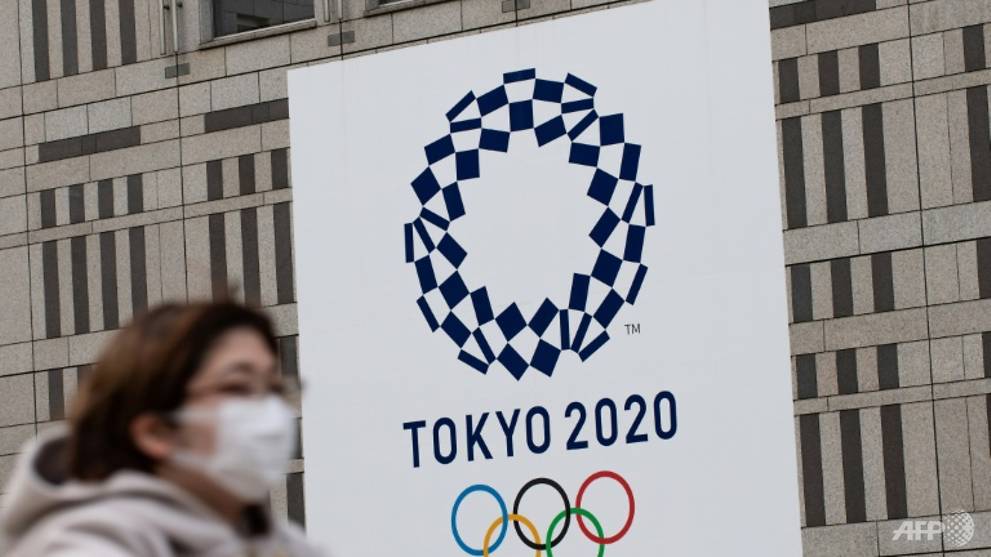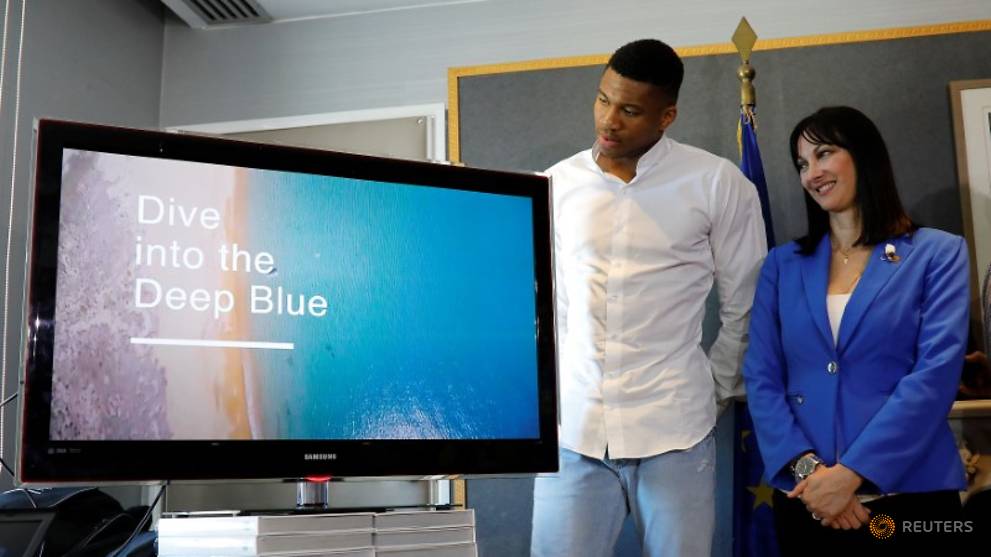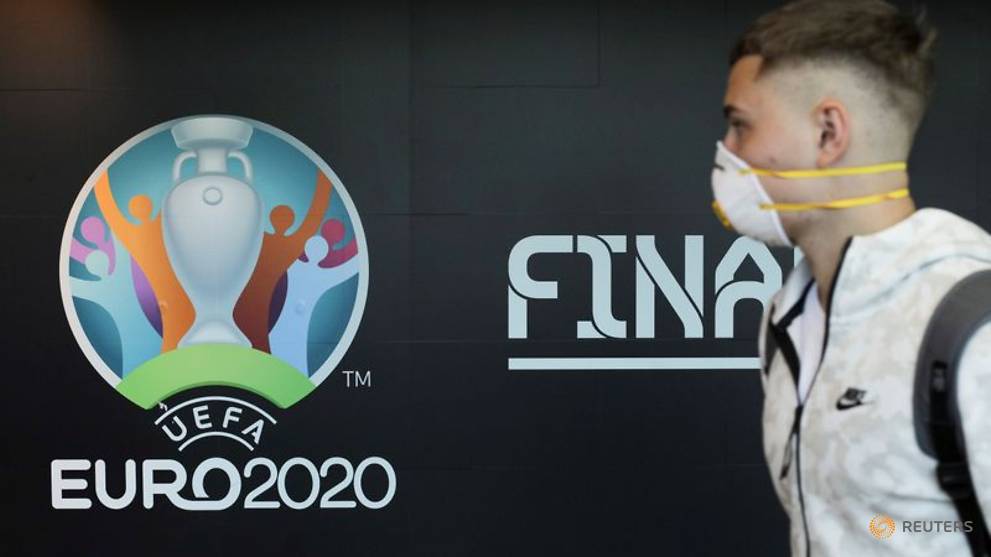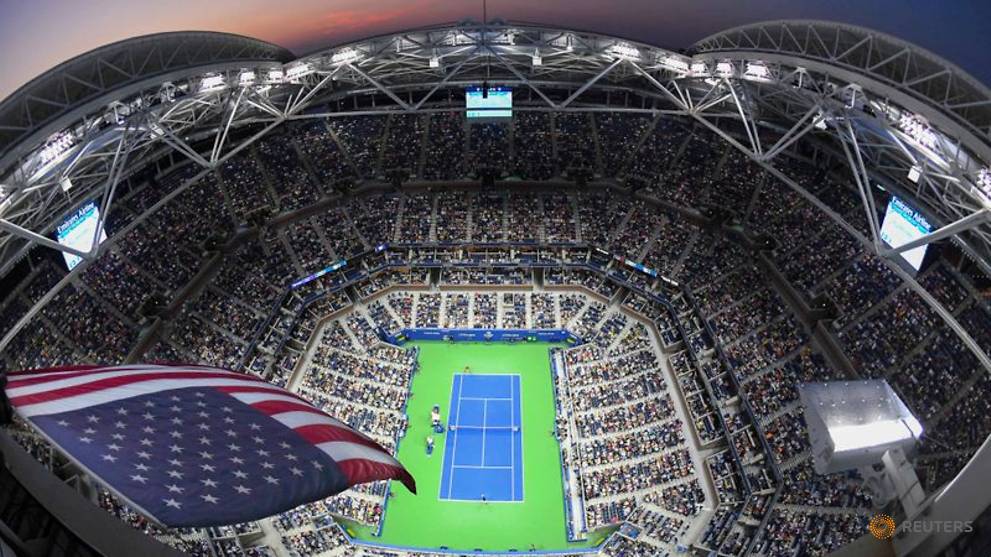
Commentary: COVID-19 has relegated sports tourism from a slam dunk year to a no-show
by Gary BowermanWith the Olympics and European Championships 2020 delayed until next year and top matches unable to receive spectators, sports tourism faces a challenging future, says Gary Bowerman.
KUALA LUMPUR: Last week, the 2020 World Sports Tourism Congress was due to take place in Lloret de Mar, Spain.
Unsurprisingly, it was postponed.
Conventions are prohibited everywhere, and precious little tourism is occurring anywhere.
To make things worse, sports travel also relies on venue-specific participation, and attendance is banned even at the few professional sports matches currently taking place around the globe.
It wasn’t supposed to be this way: 2020 was primed as a blockbuster year for sports-related travel.
Tokyo was ready to host the Olympic Games while 12 cities in Europe prepared to stage the 2020 UEFA European Championship football tournament.
Instead, COVID-19 shunted both this year’s major sporting events into 2021.
A HIGH-GROWTH TRAVEL SECTOR
Travelling to experience the thrill of live sporting action has witnessed huge growth in the past decade.
According to the World Travel Organization (UNWTO), the global sports tourism industry is worth US$800 million – amounting to about 10 per cent of the global tourism pie.
“More and more tourists are interested in sport activities during their trips, whether sports are the main objective of travel or not,” says the World Travel Organization (UNWTO), which organises the World Sports Tourism Congress.
It adds that “Sports events can be a catalyst for tourism development if successfully leveraged in terms of destination branding, infrastructure development and other economic and social benefits.”
READ: Commentary: Domestic travel in Asia Pacific not hitting full speed yet as consumers slow to return to the skies
READ: Commentary: The eye-watering costs of postponing the Tokyo Olympics
From being a niche sector, sports travel has entered the mainstream.
Many national tourism boards, such as in Australia and Singapore, have dedicated sports travel sections on their websites, and specialist sports tour firms and premium ticket sellers regularly exhibit at travel shows.
The increasing lure of sports tourism is also reflected through the growing linkage between travel brands and major sports event sponsorships.

For example, Airbnb is an official Tokyo Olympics sponsor and Booking.com is an official partner of the UEFA European Championships.
Airlines are also closely aligned to major events. Emirates Airline is an associate partner of the Australian Open tennis tournament, while Qatar Airways was an official partner of the 2019 FIFA Women’s World Cup in France.
In 2018, an executive from Spain’s La Liga made a football tourism presentation at ITB Asia, the region’s largest travel trade show, in Singapore.
In addition, top sports clubs and franchises, tournament and TV rights holders and sponsors have become proficient at marketing sports travel experiences.
These often include match-day tickets, guided stadium tours, player meet-and-greet sessions and exclusive take-home souvenirs.
But a high hurdle exists for sports tourism to recover. For leisure and business travel, COVID-19 travel bans, lockdowns and quarantines removed the critical demand factor.
A phased lifting of these restrictions should unlock at least some pent-up demand.
READ: Commentary: When economies reopen for business but families are reluctant to spend
READ: Commentary: The wonder of clear skies and returning wildlife is our new climate problem
The same demand constraints exist in sports tourism, but they are compounded by a supply deficit.
Apart from a handful of football leagues playing games in empty stadiums and charity golf events in the US, no top-level sport is taking the field.
SUMMER WITHOUT SPORTS
The Tokyo Olympics and UEFA European Championships have created a large hole in sports tour scheduling.
The Olympics is an interesting case, because hosting the Games rarely generates the tourism flows that host cities expect.
This is often due to over-pricing of hotel rooms and flights, and ticket allocation measures that favour domestic fans over incoming visitors.
Host governments pair the sporting action with a relentless two-week tourism promotion campaign showcasing the country’s diverse attributes to TV viewers worldwide.
The goal is to incentivise more tourists to visit later in the year, once the gold medals have been won, packed and shipped.
READ: Commentary: Our flights of fancy have stopped but were they all that romantic anyway?
READ: Commentary: Airlines have it bad with COVID-19 but airports have it worse
In short, the Olympics allows the host country to showcase its tourism offerings to the rest of the world.
By contrast, the UEFA European Championships would have generated large tourism flows as football is a very tribal sport that attracts stadiums of fans.
Moreover, the tournament is more of a travel event as games are held in many different major cities so there is more of a multi-destination tourism experience.
Played during Europe’s peak season months of June and July, it brings together the continent’s 24 top national teams to play at marquee stadiums in 12 tourism-friendly cities, such as Amsterdam, Budapest, Copenhagen, London, Rome and St Petersburg.

Advance ticket sales were impressive - around 3 million tickets were on sale and UEFA reported that it had received 28 million ticket applications - while bars, cafes, hotels, tour guides and ride-sharing apps in each city were expecting a stellar summer.
But the Olympics and UEFA 2020 are not the only signature sporting events unable to deliver significant tourism spend this time round.
There will be no Tour de France or Wimbledon this summer, and several F1 Grand Prix races are postponed. The Indian Premier League missed its prime April slot, although it may still be played in October.
In Singapore, the International Champions Cup football tournament, which entices Europe’s star-studded teams to play at the National Stadium – and is supported by the Singapore Tourism Board – is taking an enforced year out as large-scale events and public gatherings are still prohibited by the government due to COVID-19.
Football is facing a spiralling financial shock from COVID-19.
Europe’s four biggest football leagues – all of which regularly attract tourist fans from around the world – have worked hard to restart their truncated seasons.
READ: Commentary: The EPL needs extra-time before it can kick-off again
At present, Germany’s Bundesliga is playing matches in closed stadiums with piped-in crowd noise, with Spain’s La Liga following suit on Jun 8, England’s Premier League on Jun 17 and Italy’s Serie A on Jun 20.
SILENT STADIUMS UNTIL 2021?
Looking ahead, the US Open golf major has been postponed until mid-September, while Australia retains hopes of hosting the 2020 T20 Cricket World Cup in October.
Neither event is certain to go ahead but if they do, spectator numbers will either be heavily reduced or, more likely, locked out as general anxiety and fears of COVID-19 will curtail attendance.
Similar uncertainty surrounds the Singapore Grand Prix – whose organisers have said they are unwilling to stage a closed-door race – and the rescheduled French Open tennis tournament in September, which also faces a potential player boycott as it is due to be staged only a week after the US Open finishes.

The sports and tourism industries are palpably aware that rebooting sports-related travel is impossible while public access to matches and events is prohibited.
Much depends on the feared coronavirus second wave, which would likely hit in the later part of the year.
The US’ top infectious diseases expert, Dr Anthony Fauci, who is the Director of the National Institute of Allergy and Infectious Diseases said in a public webinar earlier this month that a second round of COVID-19 cases is "inevitable" as “the virus is so transmissible and it's globally spread", and that Americans should prepare for "a bad fall and a bad winter."
READ: Commentary: Contact tracing aside, you should worry if you have to report your whereabouts to your boss after work
Even without a viral resurgence, the travel fear factor is hard to forecast – especially for long-haul trips.
Travel considerations aside, some sports leagues do not even foresee a return to stadium crowds until at least 2021.
So, for now, travel and sports fans have little option but to switch on the TV, and imagine ourselves sitting among the cardboard cut-out spectators placed around Germany’s grand football stadiums or watch re-runs of their favourite sporting teams and heroes.
LISTEN: How Singapore businesses and workers can thrive in a post-pandemic new normal
BOOKMARK THIS: Our comprehensive coverage of the coronavirus outbreak and its developments
Download our app or subscribe to our Telegram channel for the latest updates on the coronavirus outbreak: https://cna.asia/telegram
Gary Bowerman is Director of Check-in Asia, and an experienced Asia tourism and consumer analyst and media commentator. He spent six years living and working in China, and has been based in Kuala Lumpur since 2010. He is the author of The New Chinese Traveller: Business Opportunities from the Chinese Travel Revolution.
Editor's Note: This commentary has been updated to reflect the news that the EPL and Italian Serie A have confirmed their re-start dates.